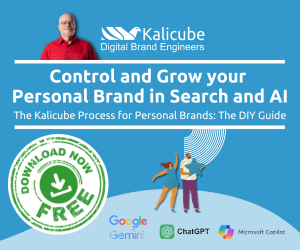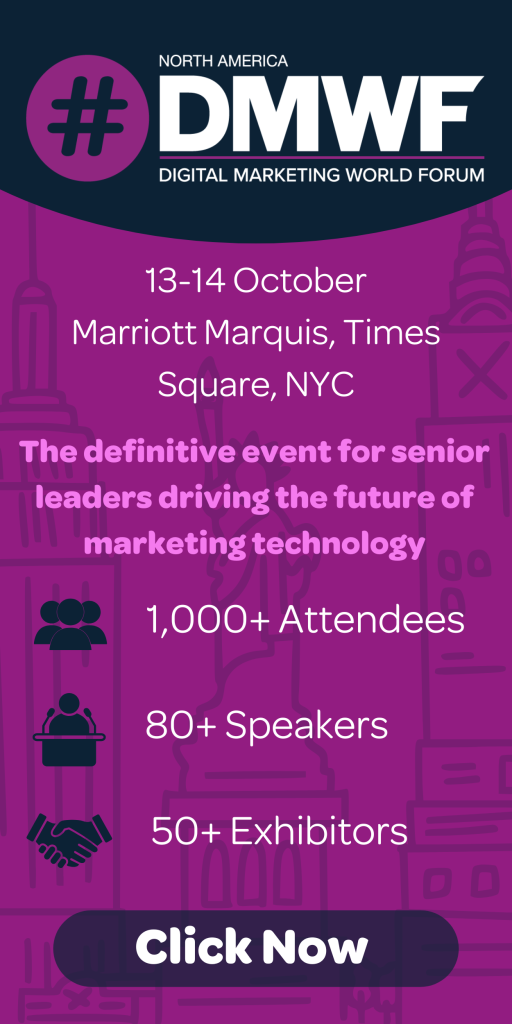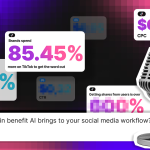
Marketers love a buzzword. It makes sense – our industry is all about promoting and selling the latest thing. So it’s perhaps not surprising that the marketing industry has well and truly been taken in by what has to be the buzziest buzzword of the past couple of years – AI. The irony? For all the talk at industry events and in the media – never mind sales material – only 27% of marketers in the UK are actually using AI or machine learning in their jobs.
So, why are the majority of marketers not currently using AI? We conducted a piece of research with Vitreous World earlier this year to ask 400 marketers about the top barriers preventing them, and their businesses, from adopting this tech. Let’s take a look at the top three reasons and why they may not be as hard to overcome as you might think.
A lack of understanding about what it is about
If someone asked you, “Do you know what AI is?”, you’d likely say yes. But if someone asked you to define it? That’s when things get a bit trickier. The fact is the definition of artificial intelligence differs depending on who you are talking to. For a philosopher, it’s about whether a machine has a mind, whereas for a computer scientist, it is a tool that can do tasks previously completed by humans. For marketers – well, for 65% of them anyway – it has become a buzzword they don’t really understand.
It’s hard to find a tech company that isn’t claiming to use AI in some shape or form. Part of the confusion stems from the huge amount of bullshit in the market right now
Part of this confusion stems from the huge amount of bullshit in the market right now. It’s hard to find a tech company that isn’t claiming to use AI in some shape or form – regardless of whether they are actually developing and using AI in a real, meaningful way.
And the problem is that this lack of understanding has led us into what has been coined “the trough of disillusionment”, with people investing significant amounts into AI technologies that they’ve been mis-sold or have had unrealistic expectations set. It’s therefore vital marketers challenge their tech partners to be fully transparent and accurate about what their tech can and can’t do.
Fear – of the unknown, the impact on society and that it will take marketers’ jobs
It’s unsurprising that confusion about what AI is has led to a sense of fear. But, much of this fear can be allayed by drawing a clear line between ‘general’ AI and ‘narrow’ AI. General AI is the sort of AI that philosophers and science fiction fans are interested in. It basically means an AI that is as smart, or smarter, than humans – and this is what most people are fearful of. The fact is we are a long, long way from creating such tech.
Narrow AI, on the other hand, is already widespread in your day to day life. Narrow AI acts as a technical solution to a particular – or narrow – problem. For example, when your email places spam messages in your ‘junk’ folder – that’s thanks to a narrow application of AI to solve the specific problem of nonsense emails clogging up your inbox.
And narrow AI is much less likely to take your job. While it's undeniable that AI is having an impact on employment opportunities in some industries – for marketers, AI is only going to take over the boring parts of their jobs. There is a direct link between the amount of repetition in a job and the ability to apply AI to it. Email subject lines, for example, can be repeatably automated.
I recently sat down with Molly Prosser, eBay’s Associate Creative Director, to discuss her experience of working with AI. She told me that she sees Phrasee as a tool to free up marketers’ time, enabling them to do the kinds of copywriting and creative thinking that most marketers actually want to do. When she receives any hesitance from her team about the role of the AI, she asks whether they want to write 150 subject lines for emails or if they want to spend the same time thinking about their next innovative campaign? When put like that – it’s a no-brainer.
A lack of understanding on how to make the most of ML and AI to deliver and prove results
One consequence of the AI hype is that it is built up into being the one-stop shop for solving marketer’s problems. Too many AI firms are guilty of selling “the dream” that they can transform entire businesses, and so people buy into technology assuming it's going to be a panacea and fix all their problems.
While it’s undeniable that AI is having an impact on employment opportunities across industries, for marketers it is only going to take over the boring parts of their jobs
As explained above – you first need to define a specific problem and bring in a narrow solution to fix it – not an all-singing, all-dancing technology solution. In a similar vein, businesses should embrace low touch use cases that have a minimal impact on existing infrastructure and team but make a big difference to the bottom line.
For example, Phrasee can be brought in as a quick and simple win and demonstrate to the rest of the business that AI doesn’t need to be something to be afraid of. But that’s not to say that narrow focus means light impact – the subject line of an email is the precipice of all email marketing, so if that sucks, then all the time you’ve spent on copy and creativity is wasted. Just ask our friends over at Virgin Holidays, who confirmed they achieved several million pounds in additional revenue a direct result of using our AI tech.
So, while there’s no doubt adopting AI has its challenges – the rewards for marketers can be great. The key is to find a transparent and trusted partner which will not only deliver tangible results but guide you over the hurdles that come with adopting any new tech. And once you’ve successfully navigated those, it’s downhill all the way as the AI takes over those dull and time-consuming tasks – leaving you free to get on with the fun stuff.
 Interested in hearing leading global brands discuss subjects like this in person?
Interested in hearing leading global brands discuss subjects like this in person?
Find out more about Digital Marketing World Forum (#DMWF) Europe, London, North America, and Singapore.









